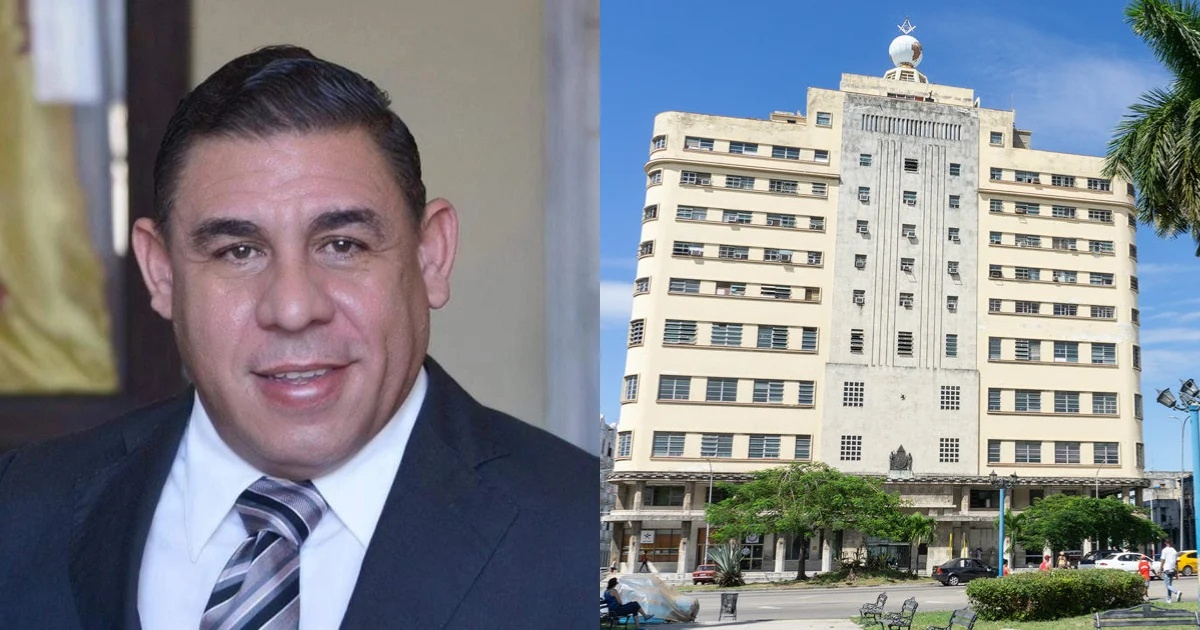
Mario Alberto Urquía Carreño, who served as Grand Master of Freemasonry in Cuba despite growing discontent against him, finally submitted his resignation on August 18, after at least seven months of intense disputes within the island's Masonic community.
Despite Urquía Carreño clinging to the position, despite having been previously expelled from the Order, he made the decision after pressure from Cuban Freemasons, who demanded his resignation due to growing internal divisions.
"Before allowing the existing division to further harm the Institution and increase the attacks carried out through social media, which would further exacerbate the denigration to which the Grand Lodge of Cuba of A.L. and A.M. is subjected by its enemies, for the good of the Institution, this Grand Master resigns from the position," Urquía Carreño stated in an official statement reported by the independent outlet Cubanet.
Regarding the reasons behind his resignation, Urquía Carreño stated that in the Masonic institution there is "an incompatibility of criteria in the correct application and interpretation of our laws," which has led to "opinions in our Lodges being divided regarding the correct course of action."
Furthermore, he lamented that "hatred and insults have been unleashed among brothers, forgetting that we swore to defend each other, both present and absent. The current institutional situation shows a disastrous division. The actions observed from some Freemasons reveal a growing danger of aggression, and we will not allow this to happen; misunderstanding has subjected our brothers."
The resignation occurred after a meeting with more than a hundred Freemasons at the Grand Lodge of Cuba, a gathering called by Urquía himself.
The Freemasons gathered in the theater of the Grand Lodge building, where an anonymous source consulted by the aforementioned media described that Urquía intended to manipulate those present. However, the Freemasons present did not allow this, and the unanimous phrase that could be heard was: "Give it up and leave."
One of the witnesses of the meeting reported that tensions escalated to the point that Urquía left the theater, but was followed by the freemasons to the eleventh floor, where his office is located.
Under the pressure of those present, the Grand Master agreed to meet with a representative group. For two hours, the terms of his departure were negotiated, although the details of those conversations remain a secret.
Finally, Mario Urquía agreed to resign, and in his place, Deputy Grand Master Maykel Filema was appointed, who will be tasked with calling for elections in the next session of the High Chamber, scheduled for September.
Urquía's resignation is seen as a victory by the Freemasons.
The problems began with the mysterious theft of $19,000 from his office, an event that culminated in his expulsion from the Order.
Despite this, the Ministry of Justice of Cuba, in an act of interference permitted by the laws of the country, did not recognize the expulsion and reinstated Urquía in his position in less than three months.
That fact prompted a massive protest from Freemasons outside the office of the Grand Master on July 23 and led to dozens of lodges insubordinating.
In recent days, Mario Urquía spoke in a video explaining that the stolen money belonged to the National Masonic Asylum and addressed the accusations made against him, including those of betrayal and theft.
Urquía Carreño categorically denied being responsible for the theft and clarified that the police document he signed, committing to return the money, did not imply an admission of guilt.
He explained that the delay in the refund was due to the need to comply with Cuban laws, which require that the reimbursement be made in Cuban pesos (CUP), resulting in a considerable loss due to the disparity with the value of the dollar in the informal market.
The Grand Master also questioned the initial statement issued by the National Masonic Asylum Board, labeling it as "incriminating."
He emphasized that he had already made a deposit of 270,000 CUP, equivalent to 1,000 USD, as a show of his commitment to returning the funds.
Despite his intention to remain in office, Mario Urquía has ultimately had to yield to the pressure to resign.
What do you think?
COMMENTFiled under: